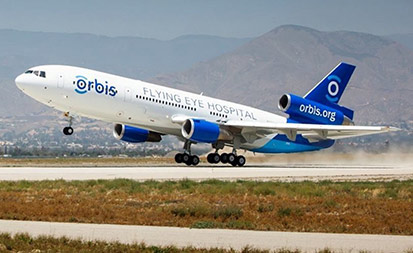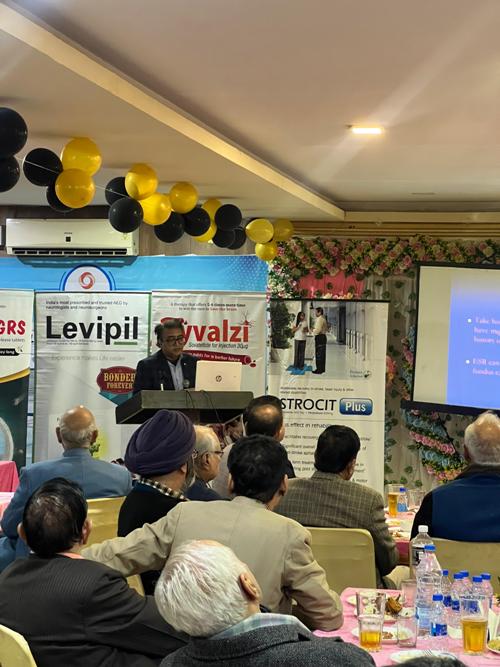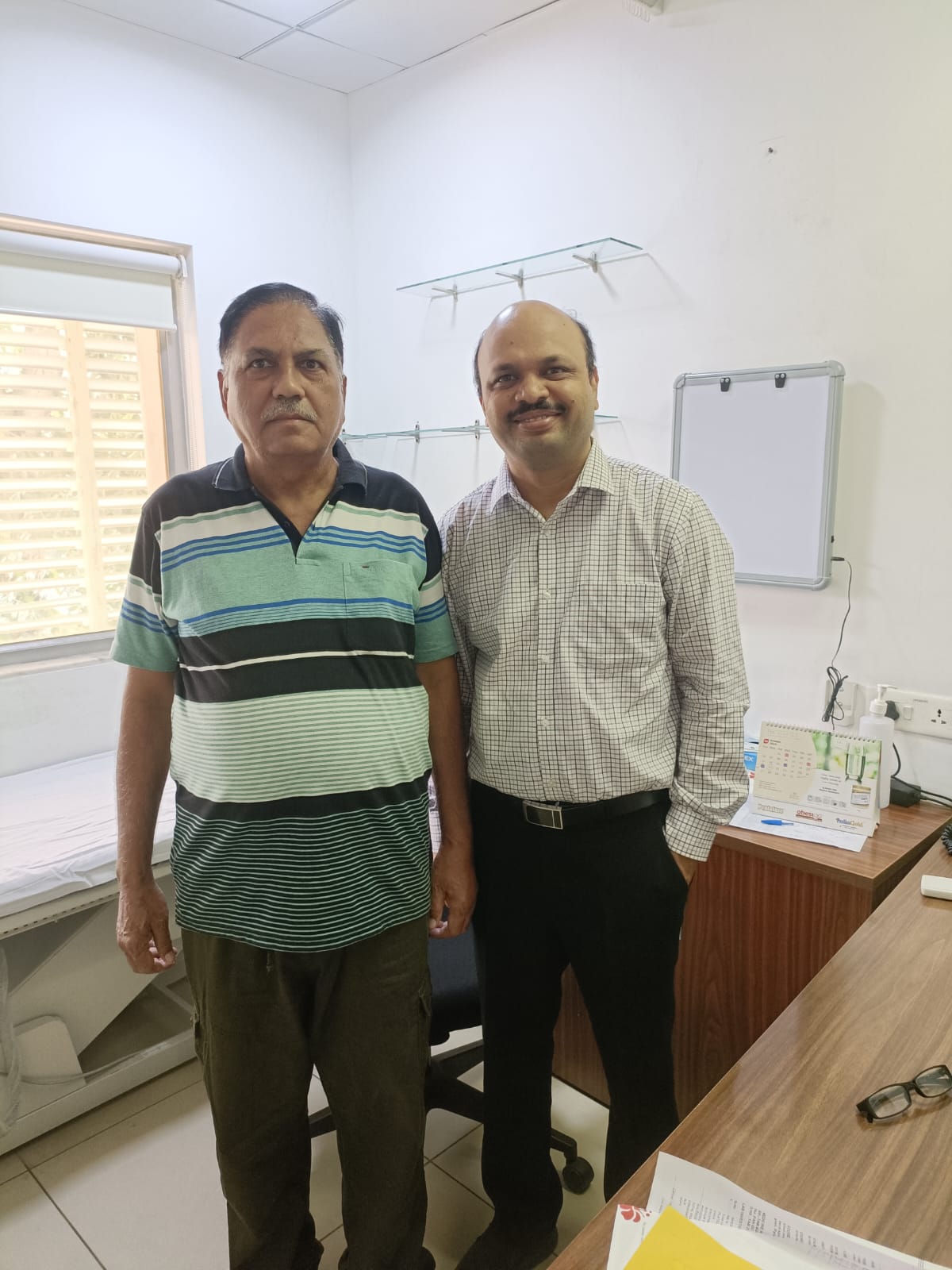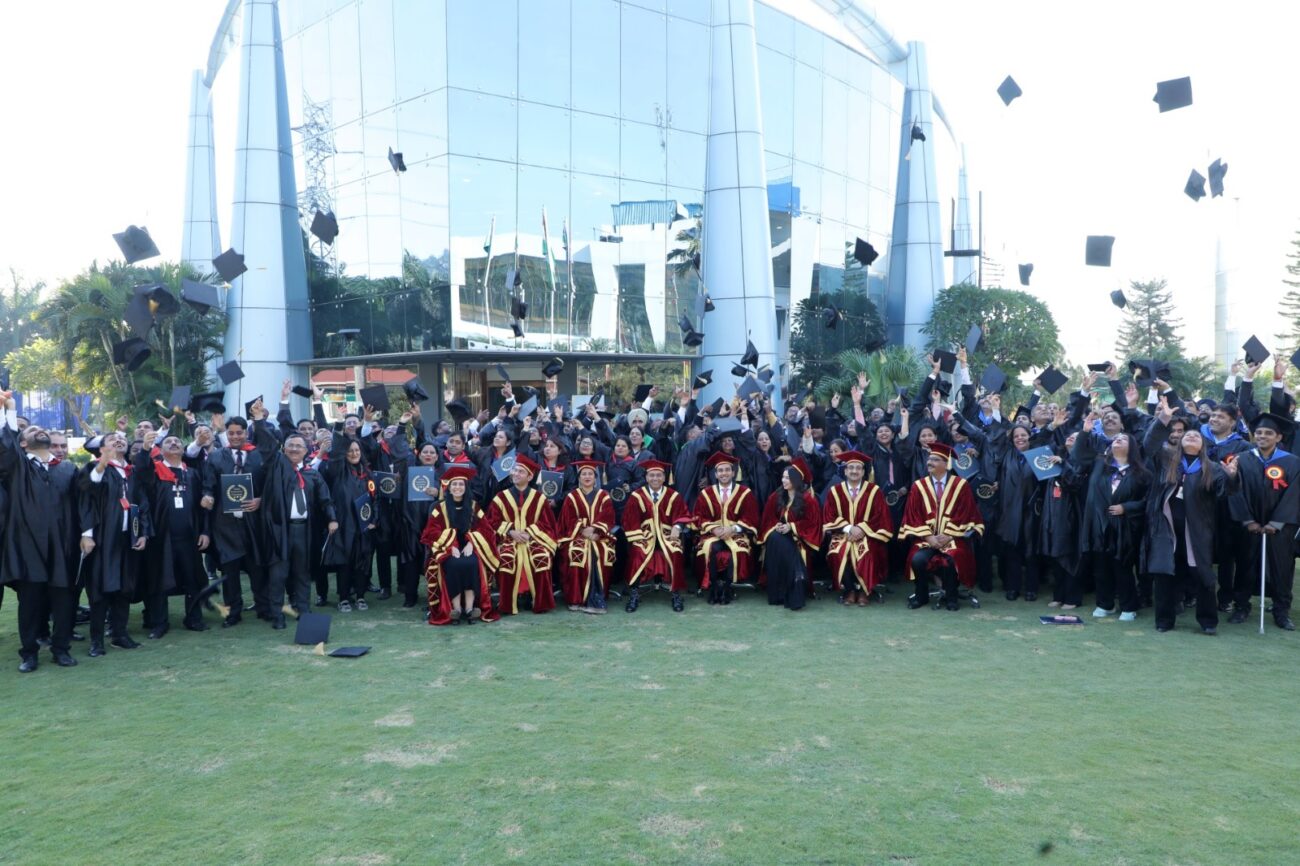Orbis Flying Eye Hospital Makes a Virtual Landing in India
Boeing is supporting the training for Indian eye care professionals Today, Orbis announces it is teaming up with Boeing to bring its Flying Eye Hospital to India virtually, in a project that will train 160 eye care professionals from across 10 states. The announcement is an important milestone this year, as Orbis celebrates 20 years

Boeing is supporting the training for Indian eye care professionals
Today, Orbis announces it is teaming up with Boeing to bring its Flying Eye Hospital to India virtually, in a project that will train 160 eye care professionals from across 10 states. The announcement is an important milestone this year, as Orbis celebrates 20 years of work in India, training eye care professionals and working with local partners to fight avoidable blindness.
The Orbis Flying Eye Hospital – the world’s only fully accredited
“2020 has not turned out how any of us planned, but one constant is the need to ensure that eye care professionals can still get the training they need – safely – to provide quality patient care,” said Dr. Rishi Raj Borah, Country Director of Orbis India. “We are thrilled to partner with Boeing and grateful for the company’s support of this virtual project, a shining example of what can be accomplished when two like-minded organizations commit to change.”
“Orbis’s commitment to treating preventable blindness is inspiring. Through such initiatives in health, in addition to others in skilling and education, The Boeing Company has positively impacted more than 300,000 lives. We’re excited that Orbis is bringing their mission to mentor, train, and inspire eye care professionals to bring long-term sustainable eye care to local communities in India now. It is our honor to support them in their work to improve this human condition worldwide,” said Salil Gupte, President, Boeing India.
The virtual Flying Eye Hospital project will be carried out through Orbis’s award-winning telemedicine platform, Cybersight. Orbis will provide tailormade courses to help eye care professionals improve their knowledge and skills in the following areas: medical retina procedures related to diabetic eye disease, cataract surgery, ophthalmic nursing and biomedical engineering. The participants – which include ophthalmologists and residents, nurses, and biomedical engineers and technicians – will be engaged through pre-learning modules, recorded lectures, and live lectures & discussion sessions.
In an especially innovative model, the cataract course includes remote simulation training so that participants can hone their cataract surgical techniques on artificial eyes before operating on patients directly. By recording and uploading videos of their practice, participants will
As cataracts are the leading cause of blindness in India, and complications from cataract surgery are the third-leading cause, there is a vast need for increased training in this area. Simulation training has been shown to reduce potential risks and promote safer surgeries by giving surgeons the opportunity to master their skills safely before operating on patients directly. While simulation has become a widely practiced mode of training eye professionals across the globe, those in India still largely lack access to it.
Boeing, a dedicated Global Partner of Orbis since 2019, began working with the organization through its “See the Future” initiative, designed to provide critically important trainings to eye health professionals around the world. Boeing’s partnership with Orbis has increased access to medical training programs around the world and increased awareness of the importance of global eye health. As a standing partner of Flying Eye Hospital programs around the globe, and now as the Exclusive Title Sponsor of the Virtual Flying Eye Hospital project, Boeing’s continued support is playing a vital role in preventing avoidable blindness around the world.
For nearly four decades, the Flying Eye Hospital has travelled the world delivering best-in-class training for eye care professionals in areas with the greatest need. In addition to India, virtual Flying Eye Hospital projects have also been offered for eye care professionals from Bolivia, Cameroon, Chile, Ghana, Ethiopia, Mongolia, Peru and Zambia this year.






